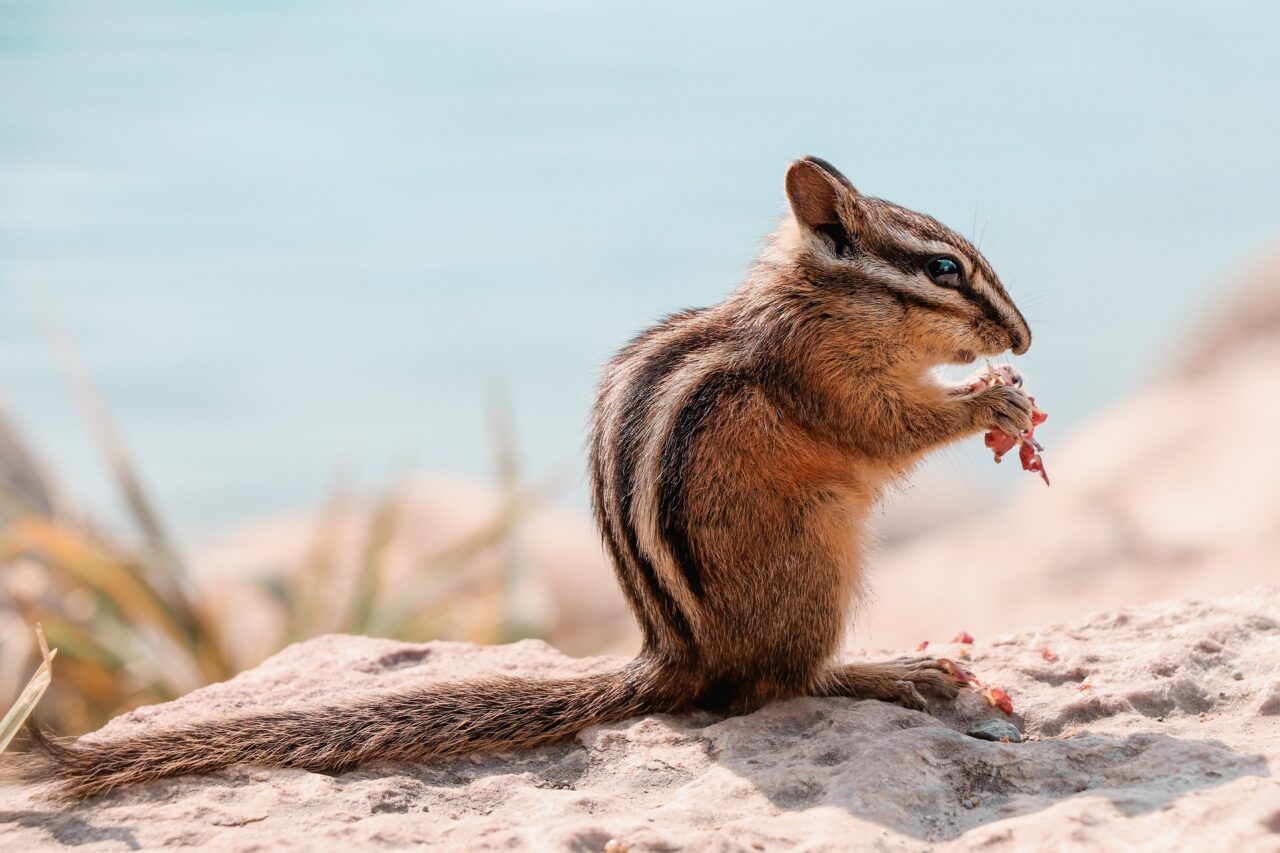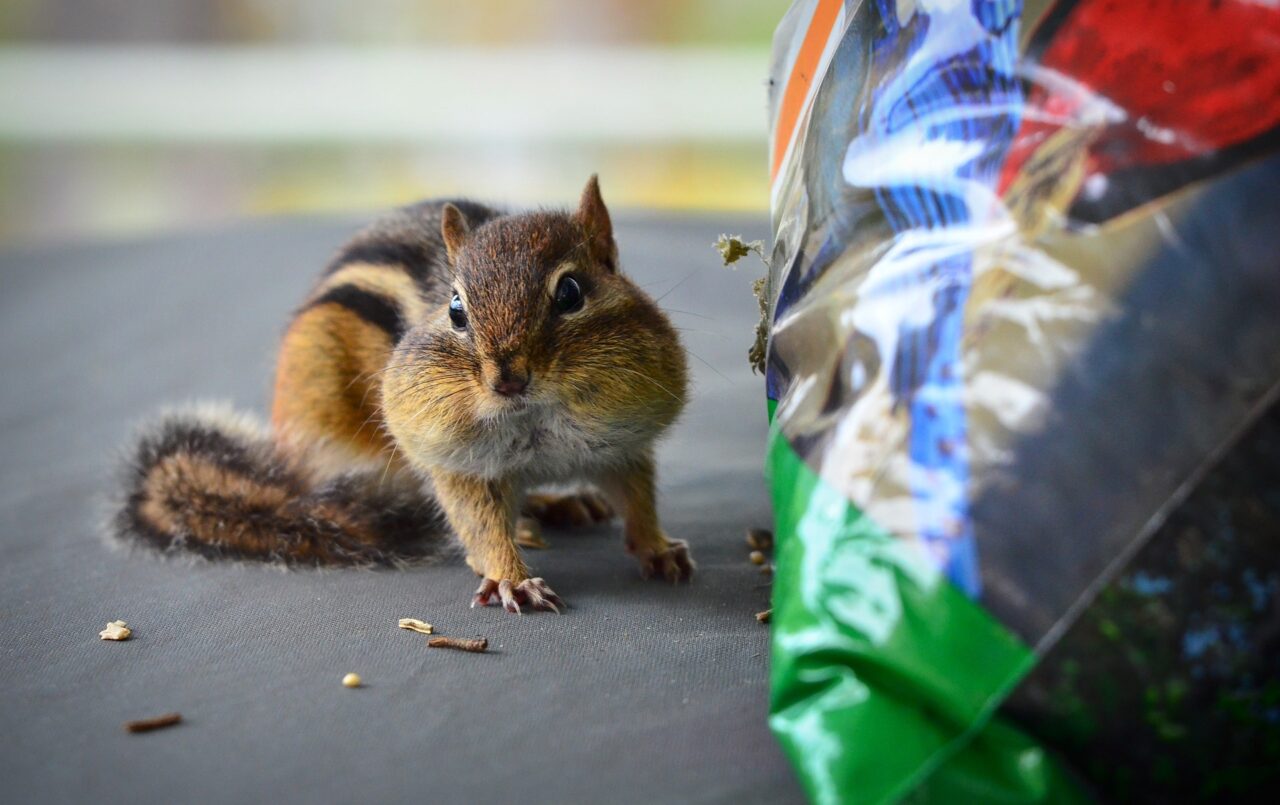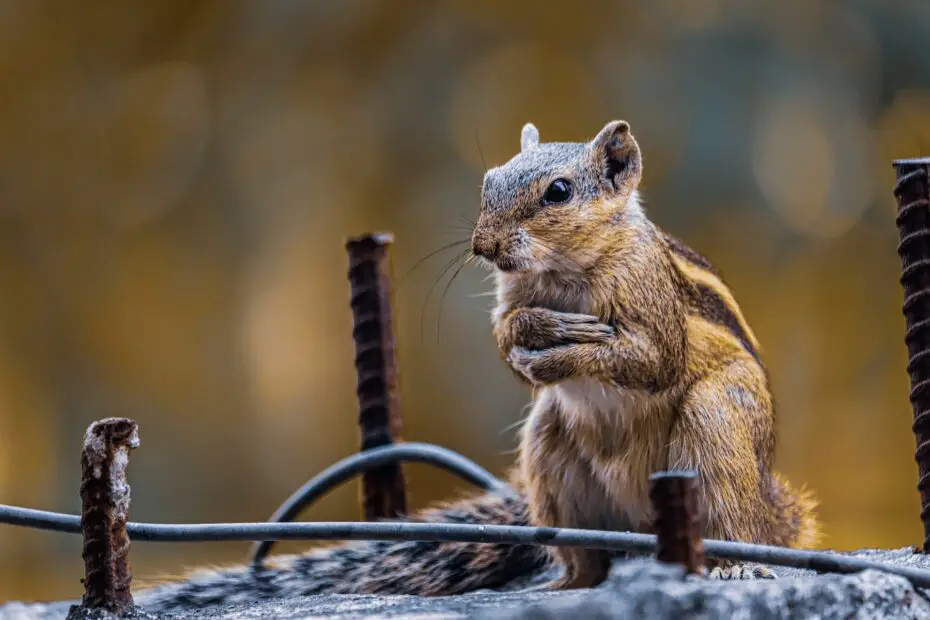What Does a Chipmunk Eat? Chipmunks, with their charming appearance and lively antics, have captured the hearts of nature enthusiasts and backyard observers alike. But have you ever wondered what fuels these adorable garden dwellers? In this article, we will explore the culinary preferences of chipmunks and uncover the delightful array of foods that make up their diet. From seeds and nuts to fruits and insects, join us on a journey to discover what chipmunks love to eat.
Read more about rodents here.
Introduction to Chipmunks
Chipmunks are small, ground-dwelling rodents that belong to the squirrel family. They are known for their striped fur patterns and bushy tails. These lively creatures are primarily found in forests, woodlands, and suburban areas where they can find suitable shelter and food sources.
Herbivorous Delights: Chipmunks’ Love for Seeds and Nuts
Chipmunks have a special fondness for seeds and nuts. They are skilled foragers and are often seen gathering and storing these food items in their cheek pouches. Acorns, sunflower seeds, walnuts, and pine cones are among their favorite treats. These energy-rich foods provide chipmunks with essential fats and nutrients to sustain their active lifestyles.

Fruits and Berries: Sweet Treats for Chipmunks
In addition to seeds and nuts, chipmunks also enjoy indulging in the sweetness of fruits and berries. They are particularly fond of berries such as strawberries, raspberries, and blackberries. Apples, grapes, and cherries are also on the menu when these delectable fruits are in season. The juicy goodness of these fruits adds variety to the chipmunks’ diet and provides them with essential vitamins and antioxidants.
Vegetables and Greens: A Healthy Addition to their Diet
Chipmunks occasionally supplement their diet with vegetables and greens. While they may not consume these items as frequently as seeds or fruits, tender shoots, leaves, and vegetables such as carrots, peas, and lettuce can be a nutritious addition to their meals. These plant-based foods offer essential fiber and micronutrients to support their overall health.
Insects and Small Invertebrates: Adding Protein to the Menu
Chipmunks are not solely herbivorous; they also incorporate protein into their diet through insects and small invertebrates. Beetles, caterpillars, grasshoppers, and spiders are among the invertebrates that chipmunks relish. These protein-rich morsels provide the necessary building blocks for their growth and development.
Foraging and Food Storage Habits
Chipmunks are skilled foragers and have impressive food storage habits. They collect and store food in underground burrows or specialized storage chambers known as “pantries.” Chipmunks have expandable cheek pouches that allow them to gather large quantities of food quickly. They meticulously stash away seeds, nuts, and other food items to sustain them during periods of scarcity, such as winter months.
Balanced Diets and Nutritional Needs
What Does a Chipmunk Eat? Chipmunks have a knack for maintaining a balanced diet. Their natural instincts guide them to select a variety of foods, ensuring they receive the necessary nutrients for their well-being. A diverse diet rich in seeds, nuts, fruits, vegetables, and insects provides chipmunks with the carbohydrates, proteins, fats, vitamins, and minerals they require for optimal health.
Chipmunks and Human Food
What Does a Chipmunk Eat? Chipmunks are known to be opportunistic eaters and may occasionally sample human food if readily available. However, it is important to note that human food is not a natural part of their diet and may not provide them with the essential nutrients they need. Feeding chipmunks human food can also disrupt their foraging behavior and increase their dependency on artificial food sources, which can be detrimental to their health.

Feeding Chipmunks in Backyards and Gardens
What Does a Chipmunk Eat? If you want to attract chipmunks to your backyard or garden, you can provide them with a suitable environment that offers natural food sources. Planting a variety of fruit-bearing trees, shrubs, and native plants can attract chipmunks and provide them with a diverse range of foods. Additionally, offering bird feeders with seeds and nuts can be a supplemental food source for these lively rodents.
Natural Predators and Adaptations
Chipmunks have numerous natural predators, including snakes, hawks, owls, and larger mammals such as foxes and coyotes. To protect themselves from predation, chipmunks have developed various adaptations. They are quick and agile, capable of darting into their burrows or finding cover in dense vegetation. They also possess excellent senses of hearing and smell, enabling them to detect potential threats and seek safety.
Seasonal Changes in Chipmunk Diets
Chipmunk diets can vary throughout the year, especially in regions with distinct seasons. During the warmer months, they have access to a wide range of fresh fruits, berries, and insects. As autumn approaches, chipmunks focus on gathering and storing seeds and nuts for the upcoming winter. During the colder months, when food sources are limited, they rely on their stored caches to sustain them until spring.
The Role of Chipmunks in Ecosystems
Chipmunks play an important role in ecosystems as seed dispersers. By collecting and burying seeds, they contribute to the distribution and regeneration of plants in their habitats. The seeds they inadvertently leave behind in their caches can sprout and grow, aiding in the diversity and resilience of plant communities. Chipmunks also serve as prey for various predators, contributing to the intricate web of predator-prey interactions.
Conservation and Protection of Chipmunks
While chipmunks are not currently considered endangered, it is essential to ensure the preservation of their habitats. Conserving natural areas, protecting forested regions, and avoiding the use of harmful pesticides or rodenticides are crucial steps in safeguarding chipmunk populations. Respecting their natural behaviors and observing them from a distance without disturbing or attempting to capture them is also vital for their well-being.
